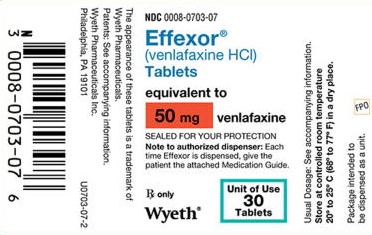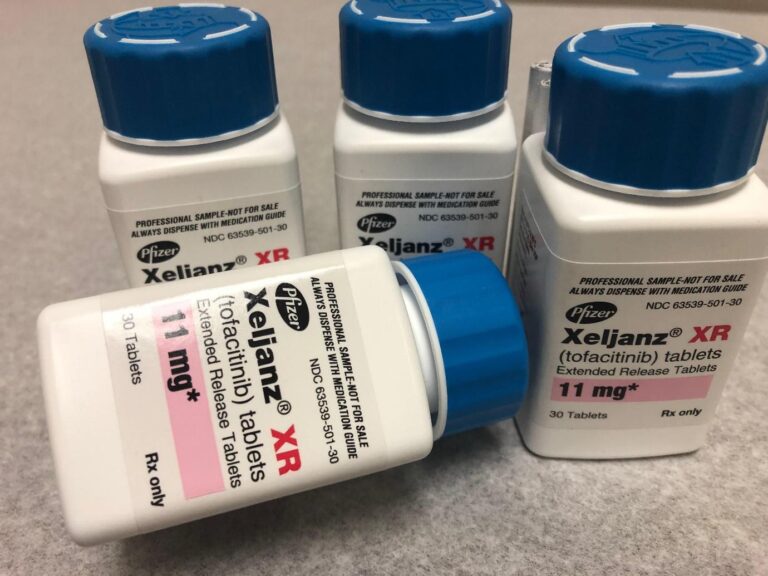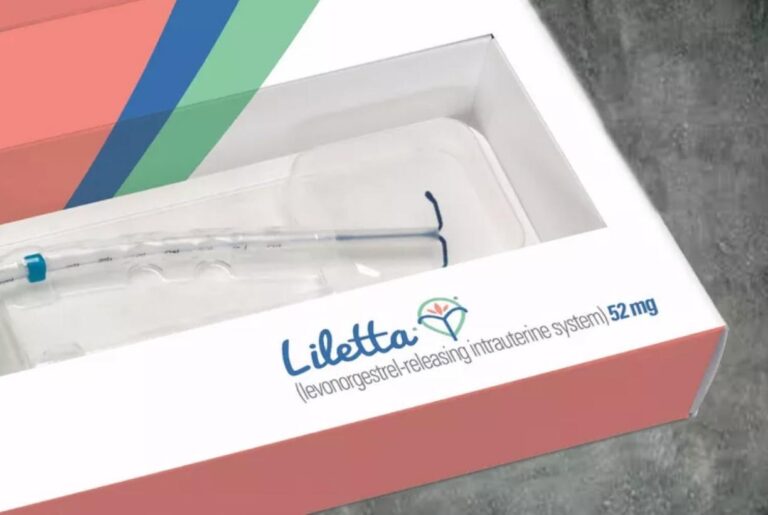The side effects Effexor withdrawal are the first thing you need to be concerned about before fully stopping taking the medication. The effects can be minor to severe physical and physiological problems. How so? Here is complete information about the withdrawal along with how to deal with it.
What is Effexor?
Effexor is a brand name for the antidepressant medication venlafaxine. Venlafaxine is classified as a serotonin-norepinephrine reuptake inhibitor (SNRI), which means it works by increasing the levels of serotonin and norepinephrine in the brain.
These neurotransmitters are believed to play a role in regulating mood and emotional well-being. Effexor is commonly prescribed to treat major depressive disorder, generalized anxiety disorder, panic disorder, and social anxiety disorder. It may also be used to manage certain types of chronic pain.
It’s important to note that medications like Effexor should be taken under a doctor’s supervision and guidance. The dosage and duration of use can vary depending on the individual’s condition. Moreover, you must follow the prescribed procedure to minimize potential side effects.
However, you should be aware of the possible side effects of the drug’s consumption. It is essential to discuss with your doctor your medical history and any other medications you may be taking to prevent the severe side effects.
Additionally, discontinuation of Effexor can lead to severe side effects Effexor withdrawal. Thus, it is necessary to discuss it with your doctor. They will help you to stop the medication safely to avoid any side effects from the withdrawal.
Effexor Withdrawal and Addiction
There are several things that need to be considered after taking the medication. If there are some indications of withdrawal after you stop taking these drugs, this could be a sign that addiction or dependence has developed.
Based on findings from non-clinical trials, it is suggested that Effexor impacts the brain’s chemistry. The neurons in the central nervous system adjust to and rely on the drug’s presence, a process known as neuroadaptation.
Therefore, if you change your dosage or stop taking venlafaxine, the neurotransmitters can’t immediately adapt, leading to uncomfortable withdrawal symptoms.
Research indicates that it’s advisable to gradually discontinue Effexor to avoid withdrawal symptoms. Moreover, Effexor withdrawal is recognized as Effexor discontinuation syndrome in medical studies and literature.
What are the Side Effects Effexor Withdrawal?
Withdrawal symptoms may begin within a few hours from the last dose consumption and may last for several weeks or longer unless treated. In general, a lot of people might notice withdrawal symptoms from antidepressants after a day or two.
The regular version of venlafaxine has a half-life of around 5 hours, while Effexor XR has a slightly longer half-life of about 11 hours. The half-life serves as a reliable indicator of when withdrawal symptoms are likely to start showing up. Here are some physical common side effects Effexor withdrawal
- Vision problems such as blurred sight, eye pain or redness, and seeing halos around lights.
- Headache, nausea, drowsiness, and dizziness. People can also experience brain zaps or brain shivers (the same reaction that happens in electric shock)
- Impulsive behavior
- Dry mouth
- Disorientation
- Tinnitus (ringing in the ears)
- Vertigo
- Changing in weight or appetite
- Unusual bleeding such as nosebleeds, bleeding gums, abnormal vaginal bleeding, and any other unstoppable bleeding.
- Breathing problem that goes with cough and chest tightness.
- Severe nervous system reaction that causes stiff muscles.
However, the emotional side effects Effexor withdrawal are also coming psychologically in some people. Here are some side effects.
- Insomnia
- Nightmares or unusual dreams
- Anxiety
- Panic attacks
- Suicidal thoughts
- Seizures
- Sexual problems
These mentioned side effects are not a complete list of things that might occur because of the withdrawal. Every person has their conditions so if you have those symptoms of serotonin syndrome, you should call your doctor immediately to get the medical treatment.
How to Deal with Side Effects Effexor Withdrawal?
Although symptoms usually fade away within a few weeks, there are some things you can do to make Effexor withdrawal more manageable during that period. Consider these following steps:
1. Discuss With Your Doctor
The doctor will be your ally in handling the situation. They will help you to prevent and cope with symptoms of side effects Effexor withdrawal. You can discuss the risks of stopping the medication. The doctor also will give you some options to slowly stop taking the drugs.
2. OTC Medications
OTC is an over-the-counter medication. It will help you to ease the side effects Effexor withdrawal. You should consult this alternative with your doctor to know whether this is a good option or not.
3. Try Psychotherapy
Studies state that psychotherapy decreases your risk of having a relapse while stopping the antidepressant medication. Before deciding on any alternative ways, the initial thing you should do is consult with your doctor. They know the best as well as the reaction towards your body.
4. Seeking Support
Asking your family, friends and even your loved ones will help you to go through all the processes. You should let them know about the possible side effects Effexor withdrawal, so they can expect something and can help you with the medical treatment if the episode is back.
5. Keep Up With Follow-Ups
Keeping up with your doctor is essential as you gradually withdraw the medication even after you’ve completely stopped taking it. It might be necessary to schedule regular monthly check-ups until the side effects Effexor withdrawal are gone.
Moreover, you should ensure that there is no indication of relapse before stopping the regular medical check-up. Keeping this open line of communication helps to get proper support and guidance throughout the process.
6. Practice Self-Care
While focusing on the withdrawal phase, you can prioritize exercise, maintain a healthy diet, ensure regular sleep, and practice stress management. These self-care practices play a significant role in stabilizing your mood as you gradually reduce your reliance on Effexor.
Taking care of yourself in these ways can contribute to a smoother transition during the withdrawal process.
You Should Prioritize The Side Effects Effexor Withdrawal!
It is crucial to prioritize the side effects Effexor withdrawal because it can result in severe conditions for your body. Moreover, you should consult the withdrawal with your doctor to get the proper treatment and prevent the worst possibilities. Any medical decision should be taken under your doctor’s supervision.
Then, keep up with all the updates and symptoms that might occur to your body and your doctor will help you to deal with it.



